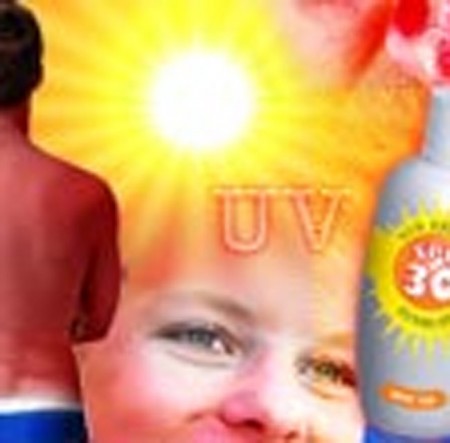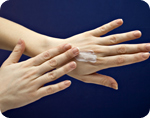– Sunscreen chemicals are KILLING you (and poisoning the environment)
* * *
PayPal: Donate in USD
PayPal: Donate in EUR
PayPal: Donate in GBP
The man who trades freedom for security does not deserve nor will he ever receive either. – Benjamin Franklin
– Sunscreen Causes Cancer? What You May Not Know About Sunscreen (Natural Society, May 7, 2012):
Who would think that sunscreen causes cancer? It has been only a fairly recent development, but it still could cause some serious shock and awe when everyone figures out that conventional sunscreen found in drugstores nationally could be a potential risk factor for skin cancer. Sunscreens are made to protect and help your body, so why are we finding out that sunscreen causes cancer? It could be simply widespread ignorance, or it could be that the FDA has kept this secret under wraps for at least a decade.
Sunscreen Causes Cancer? What You May Not Know About Sunscreen
Read moreSunscreen Causes Cancer? What You May Not Know About Sunscreen
– Sunscreen Causes Cancer! (Natural News, May 29, 2008):
Given the fact that just about everything you put on your skin gets absorbed into your bloodstream, it is interesting that there is a complete lack of regulation of cancer-causing ingredients in skin care products. There are over 150 toxic cancer-causing ingredients currently used in cosmetic products alone. According to federal law, products containing cancer-causing substances should carry a written warning. But the FDA does not enforce this law with cosmetics or personal care products. Consumers are left to purchase these products at their own risk, and as a result they are being harmed by them.
See also:
– Sunscreen Causes Cancer! (Natural News)
– CDC Finds 97 Percent of Americans Contaminated by Sunscreens (Natural News)
Sunscreens do cause cancer, especially skin cancer (!), as they contain several dangerous chemicals.
(NaturalNews) Before you apply creams, lotions, cosmetics and sunscreens to your skin, it might be a good idea to find out what’s really in them. What’s more, you need to know those ingredients aren’t necessarily just coating the outside layers of your skin. For example, as NaturalNews previously reported, UCLA scientists have recently discovered nanoparticles in cosmetics and sunscreens can enter and wander throughout the body, potentially disrupting body functions on a sub-cellular level (http://www.naturalnews.com/027603_n…). And now, for the first time, a study just published in the international science journal Chemospherehas shown that a group of chemicals known as UV (for ultraviolet radiation) filters are turning up in humans internally — and the phenomenon is widespread.
In fact, the investigation, conducted by a Swiss National Research Program called Endocrine Disrupters: Relevance to Humans, Animals and Ecosystems, found UV filters, which are common in cosmetics and sunscreens, were present in 85 percent of human milk samples tested. What does this mean for adults, much less babies taking in this contaminated milk? The alarming truth is, no one knows.
For the study, during the fall and summer of 2004, 2005 and 2006, human milk was sampled from mothers who had given birth at the University Women’s Hospital in Basel, Switzerland. The research participants also answered detailed questionnaires in order to document their use of different types of cosmetic products and sunscreens.
When the women’s breast milk was analyzed, tests revealed the milk samples contained a huge list of chemicals including persistent organic pollutants (POPs), synthetic musk fragrances, pesticides, phthalates, parabens, flame retardants (polybrominated diphenylethers), polychlorinated biphenyls (PCBs) — and cosmetic UV filters. What’s more, the UV filter chemicals were surprisingly widespread; they were comparable in concentrations to PCBs, which have long been known to contaminate the environment.
“Research on the effects of endocrine disrupters (chemicals interfering with hormone actions) has shown that it is of utmost importance to obtain information on simultaneous exposure of humans to different types of chemicals because endocrine active chemicals can act in concert. Information on exposure is particularly important for the developing organism at its most sensitive early life stages. Human milk was chosen because it provides direct information on exposure of the suckling infant and indirect information on exposure of the mother during pregnancy,” research team leaders Margret Schlumpf and Walter Lichtensteiger said in a media statement.
Read moreSunscreen Chemicals Found in 85 Percent of Human Milk Samples
Related article: Sunscreen Causes Cancer!

The Environmental Working Group has shone light on what may be a falsely presumed protection from sunscreen.
The simple rule of sunscreen – the higher the SPF and the thicker the slather, the better – has come under doubt.
The Environmental Working Group (EWG), a Washington-based research group and habitual gadfly to the business world, has found that 4 out of 5 of the nearly 1,000 sunscreen lotions analyzed offer inadequate protection from the sun or contain harmful chemicals. The biggest offenders, the EWG said, are the industry leaders: Coppertone, Banana Boat and Neutrogena.
While 3 out of 3 industry leaders are rather upset with the EWG report, and while some dermatologists criticize it for hyperbole, the report does underscore several long-standing health concerns:
Sunscreens do not offer blanket protection from the sun and do little to prevent the most deadly form of skin cancer; reliance on them instead of, say, a hat and protective clothing, might be contributing to skin cancer; and the Food and Drug Administration has yet to issue any safety standards, mysteriously sitting on a set of recommendations drafted 30 years ago.
Subcutaneous homesick blues

(NaturalNews) Given the fact that just about everything you put on your skin gets absorbed into your bloodstream, it is interesting that there is a complete lack of regulation of cancer-causing ingredients in skin care products. There are over 150 toxic cancer-causing ingredients currently used in cosmetic products alone. According to federal law, products containing cancer-causing substances should carry a written warning. But the FDA does not enforce this law with cosmetics or personal care products. Consumers are left to purchase these products at their own risk, and as a result they are being harmed by them.
Let’s consider a product that’s harming tens of millions of people every day in America alone: sunscreen. Sunscreen products do not block ultraviolet radiation very well unless you apply multiple coats, but there has been a flurry of research lately on the harm caused by sunscreen chemicals. These chemicals actually promote skin cancer. This product is causing the very condition from which it claims to protect people.
The skin is not the only organ that is harmed by sunscreen chemicals. Those chemicals are absorbed by the skin, circulate throughout the body and end up harming the liver, the organ responsible for neutralizing chemicals in the body. The continued use of sunscreen products — especially those with fragrance in them — will inevitably harm the liver and, in my opinion, can lead to organ failure or liver cancer.
Sunscreen is not the only harmful product people put on their skin; consider perfume and cologne. In an effort to smell attractive to others, consumers routinely put toxic chemicals on their bodies that come out of beautifully designed glass bottles. Most people do not realize that these fragrances are often made from toxic substances that are known to cause cancer; the perfume industry gets away with murder. This includes everything from skin cream to moisturizer lotion, not to mention shower soaps and other cleaning products with added fragrance. Unless you are buying the natural forms of these products from truly organic companies, there is no doubt that you are applying a bewildering array of harmful chemicals to your skin. And when you put them on your skin, they are absorbed directly into your bloodstream.